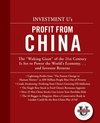
This can either be read as a stand-alone posting relating to why fundamental indexing is a better way to go than tracking a conventional index, or it can also be read as part two of two of a
book review of "The Little Book of Common Sense Investing", by John Bogle.
As relayed in part one of my review, I found the evidence presented by Mr. Bogle to be
almost overwhelming that investing in a low-cost index fund was virtually the only way for the average equity investor to outperform the broad market, like the S&P 500, over time. A very good method as the book clearly details.
However, in the book (chapters 12, 14, 15 and 16), Mr. Bogle suggests that some of the new fundamental indices (e.g.
FTSE RAFI) aren't going to stand up to the test of time, as market capitalization-weighted indices (such as the S&P 500) have. He intimates that, having seen various "better mousetraps" come and go, so too will
fundamental indexing (which back-testing shows has outperformed a cap-weighted by nearly 2% annually, a huge margin). This is essentially, he claims, just another method to part the foolish from their prospect of future returns.
He denigrates the back-testing of these fundamental indices as if that was somehow undesirable. I personally fail to see the difference between the back-testing done there, and Mr. Bogle's own back-testing that led him to the conclusion that low-cost index investing was going to beat the then conventional mutual fund of the day (an advantage that has continued to hold up to this day).
Mr. Bogle fairly asks the question of why these fundamental factors (fundamental factors are centered on accounting items, like book value, dividends paid [or dividend growth rates], earnings, revenues, etc.) have not been properly exploited by stock markets in the past? While there have been tons of academic studies pointing out that a stock-picking method using virtually any of the aforementioned factors as a major stock-picking factor would have outperformed the broader market, that still doesn't really answer the question.
The question is best answered by examining behavioural research. In other words, it has to do with the emotional nature of people, something that even mutual fund managers are subject to, as clearly evidenced by the typical 100% turnover on the conventional mutual fund. Certainly, they also appear to be "taken in" by a "good story", as much as anyone. For more insight on this issue, see the following (warning: large pdf file) commentary,
Seven Sins of Fund Management. In short, the problem is, my dear Mr. Bogle, interference from human beings.
Just as Mr. Bogle was then a pioneer of the day, by exploiting something seemingly obvious and mundane (i.e. 1. costs matter and 2. don't get trapped by "the story") it seems hard to believe that no one can build a method for a relatively sustainable advantage over a conventional index. In the future, the building of these fundamental indices today will probably be seen as something that should have occurred much earlier, given their obvious superiority.
But getting back to the business at hand, if, as alleged by Mr. Bogle early in the book, that long-term investment returns more or less parallel the returns of the stock market of the underlying businesses, doesn't it make sense to construct an index which actually gives weighting to those factors, as opposed to the more temporary and whimsical valuations imposed by market activity?
Doesn't it make sense to try and limit or exclude the "speculative" return (positive and negative) he discusses, which is, essentially, the contribution (deduction) to (from) short-term returns from stocks becoming over (under) priced? Fundamental indices attempt to do that:
exclude the most-egregiously over-priced stocks, by fundamentally examining the books of each company. Conversely, these indices also
include more of the relatively undervalued companies. That these indices might succeed over the longer-term would be due to the
rules-based inclusion of companies into the index. A fairly simple, but effective, way of eliminating or minimizing poor investment decisions: rules!
After a time, I think Vanguard, Bogle, and other indexers will recognize that these are superior indices. Then, more index funds will be created to track them. Because the basis of inclusion into these indices are the actual economic activity of the companies themselves, rather than the more capricious valuations assigned by the market activity of the moment, they can finally answer a question Bogle poses in the book: How to know which companies are over-valued in a conventional index? Effectively, the books of the companies themselves answer that question.
In the end, an index that examines the fundamentals of companies in some manner simply has to be better than one which only considers the temporary selling prices of their stocks. Vanguard and others will finally realize this, and bring the same ruthlessness to cutting costs that they did to tracking the S&P 500, for instance.
Whether these indices will continue to significantly outperform conventional capitalization-weighted indices starting twenty years from now, the answer is "probably far less" than current back-testing has shown was available. As the "rise of the machine" eliminates emotional interference (
1,
2) from making "on mass" good investing decisions, these market inefficiencies will be exploited such that they will disappear over time. And while the costs are currently slightly higher for these ETFs (about 0.5% annually) than an extreme low-cost conventional index-tracker (about 0.19%), the cost/benefit equation seems to be worth it (i.e. you pay an extra 0.3% or so, to get about 2% more).
In the interim though, as these inefficiencies are finally properly captured over the next decade or two, it's possible that excess returns will even exceed that shown in back-testing. And any advantage that is likely to persist over ten to twenty years isn't something to be ignored, in my view.
Anyone with a broadband connection and who wants to really understand the multitude of reasons why these are superior indexes, are suggested to go to these two (
one,
two) video presentations, by Rob Arnett of Research Affiliates.

JW
The Confused Capitalist
 In one of his chairman's letters, Warren Buffett once stated that ...
In one of his chairman's letters, Warren Buffett once stated that ...




